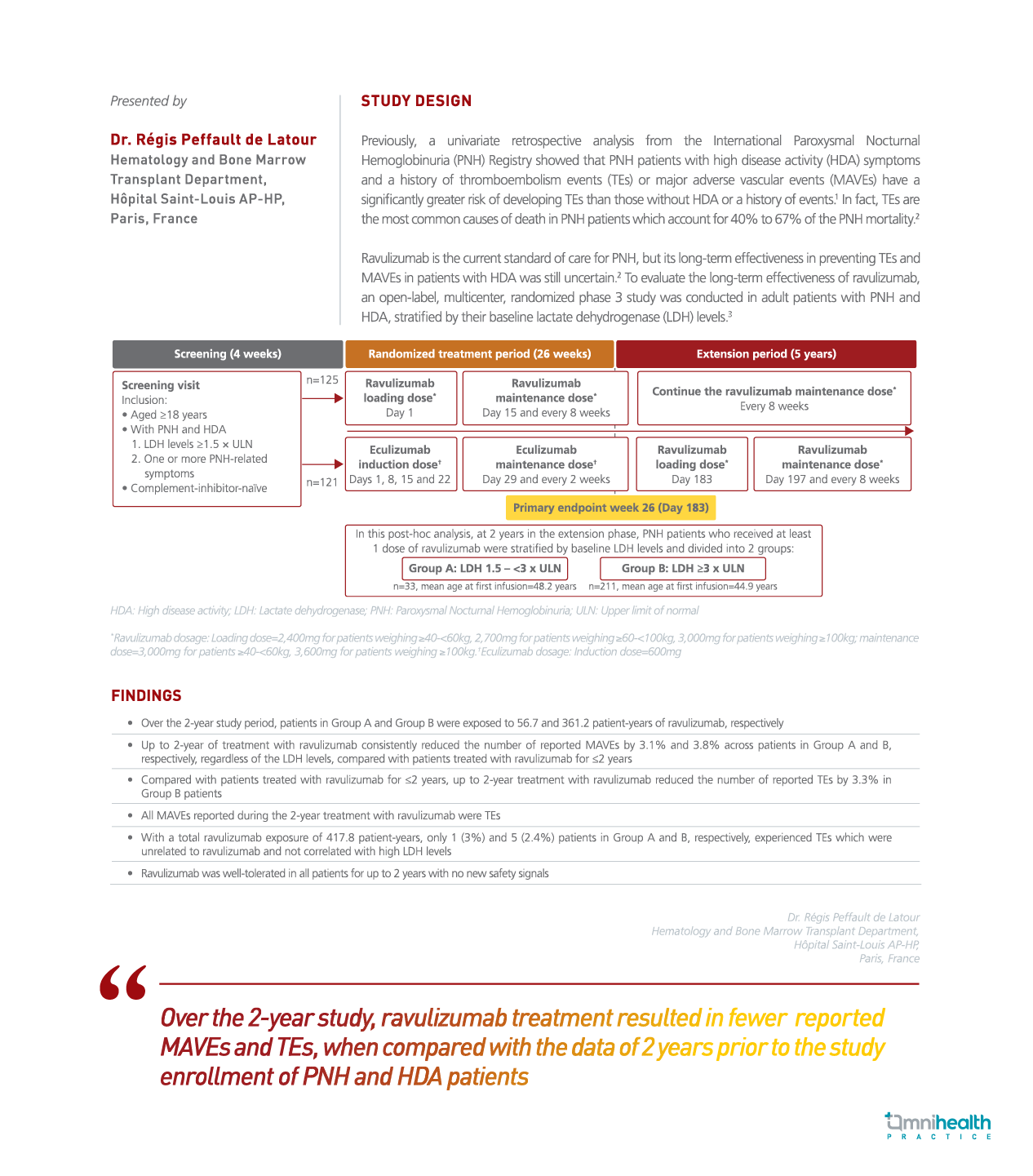Aquaporin-4 antibody-positive neuromyelitis optica spectrum disorder (AQP4+ NMOSD) is a rare autoimmune disease of the central nervous system characterized by recurrent and unpredictable relapses, which can lead to significant and irreversible neurological disability.1 Ravulizumab is a long-acting C5 complement inhibitor designed to prevent relapses in patients with AQP4+ NMOSD.1 This interim analysis presents long-term outcomes from the CHAMPION-NMOSD study, evaluating the efficacy and safety of ravulizumab in adults with AQP4+ NMOSD over a median follow-up period of 170.3 weeks.1

